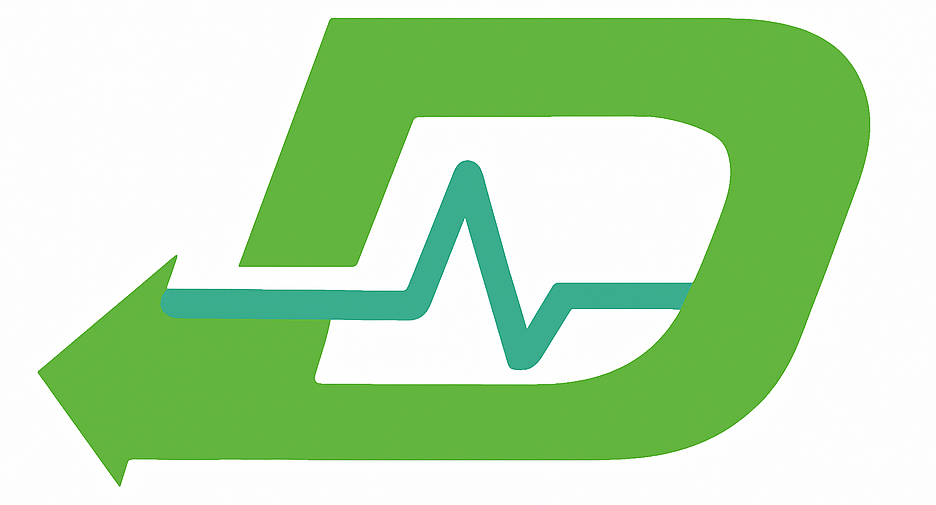Today, most specialists acknowledge that emotional or psychologic stress may increase the risk of heart disease. In fact, the negative effects of acute and chronic stress on the cardiovascular system may be much more serious than often thought.
Recent research and experience show that emotional stress may increase blood pressure and cholesterol. It may constrict arteries, promote arterial inflammation, blood clotting, and increase the risk of heart attack and sudden death.
There is a huge amount of literature available on psychologic stress and heart disease. In modern healthcare, stress is among the most common patient complaints. However, part of the problem is that the word ‘stress’ is used in so many ways, which may be quite confusing.
Stress is not easily defined, it is difficult to quantify, and dealing with it is often time-consuming and complex. This is why the effect of emotional stress on cardiovascular disease has sometimes been downgraded and even ignored. Lately, however, we have become more aware of the interactions between the body and the mind. It is now acknowledged that emotions and personality can have a huge impact on the functioning of cells, organs and disease mechanisms.
To understand stress we have to differ between the ‘stressor’, which is the external input that causes our body to react, and the ‘response to stressors’, which is the reaction of our body to the external input. The stressor is the external factor that threatens to throw us of balance. It can be an immediate physical threat, like an approaching car when we cross a street. It can be less obvious, like a busy work schedule, a problem in our marriage, or a death of a loved one. Whatever the external input, the body’s reaction is similar. There is increased activity of primitive defense mechanisms involving the autonomic nervous system. Most importantly, the sympathetic nervous system is activated, and parasympathetic activity is reduced.
Stress is a normal physical response to events that make us feel threatened or upset our balance in some way. When we sense danger – whether it’s real or imagined – the body’s defenses kick into high gear. This automatic process is known as the ‘fight-or-flight’ response. Let’s say we are walking in the forest on a sunny day and suddenly we realize we are facing a hungry grizzly bear. A grizzly bear is a REAL stressor. Stress hormones, such as cortisol, adrenaline, and noradrenaline are released into our blood stream. Heart rate and blood pressure increases. Sugars are poured into our circulation to provide immediate energy. Our breathing becomes faster to meet the increased oxygen demands of muscles and organs. All senses are primed, all muscles are tensed, and we are ready to either fight or flee to save our life.
The stress response is the body’s way of protecting us. When working properly, it helps us stay focused, energetic, and alert. In emergency situations, stress can save our life. The stress response also helps us rise to meet challenges. Stress is what keeps us on our toes during a presentation at work and sharpens our concentration. But beyond a certain point, stress stops being helpful. At that stage, it may start causing damage to our health, mood, and productivity. It will negatively affect our quality of life and may increase our risk of disease.

Sometimes patients don’t directly associate their symptoms with the stressors. They may complain of symptoms such as sleep problems and anxiety. In other cases, the symptoms are more physical like an irregular heart beat, breathing difficulties, stomach pain, nausea or diarrhea.
It is practical to differentiate between acute and chronic stressors. Examples of acute stressors are disasters such as earthquakes, loss of job, business failure or sudden divorce. Examples of chronic ‘stressors’ are job stress, marital unhappiness, and financial worries.
The effects of a stressor on the health of the individual may differ, depending on the patient’s vulnerabilities. An individual who has a strong familial and emotional support may show better tolerance to the effects of stressors than a person who is socially isolated. A good example of this phenomenon is the story of the people of Roseto.
The Roseto Effect
Roseto is an Italian-American town in eastern Pennsylvania. In the early 1960’s a local physician, Dr. Benjamin Falcone, who had been practicing in Roseto for 17 years pointed out that he rarely saw a case of heart attack (acute myocardial infarction) in any of the 1600 inhabitants of Roseto under age of 65. Subsequently, it was confirmed that from 1955 to 1965 the death rate from heart attack was markedly lower than in nearby communities and the rest of the country. However, the usually accepted risk factors were not less common in Roseto than elsewhere. The men spent their days doing hazardous labor in underground slate mines. Smoking was common. The traditional Italian food had been Americanized, and could not be considered heart healthy. So why weren’t Rosetans dropping dead with heart disease?
Here is how Dr. Stewart Wolf and coworkers describe the social and family structure of the inhabitants of Roseto: “The Roseto that we saw in the early 1960s was sustained by the traditional value of southern Italian villagers. The family, not the individual, was the unit of their society. The community was their base of operations, and each inhabitant felt a responsibility for its welfare and quality. Most households contained three generations.
Rosetans were proud and happy, generous, hospitable and ready to celebrate any small triumph of their citizens. The elderly were not only cherished but, instead of being retired from family and community responsibilities, they were promoted to the ‘supreme court’. There was no shortage of stress among Rosetans. They experienced many of the same social problems and personal conflicts as their neighbors, but they had a philosophy of cohesion with powerful support from family and neighbor and deep religious convictions to shield them against and counteract the stresses”.
The Roseto effect is interesting because it teaches us about how people can be shielded from the effect of stressors, thereby limiting the damaging effects of stress on the cardiovascular system. The important thing is to realize that all the traditional stressors were present among the Rosetans. However, the strong emphasis on the family, and not the individual as the unit of their society, appeared to protect the people from the harmful effects of stress on the heart. This is believed to have significantly reduced the incidence of acute heart attack among the Rosetan people.
Emotional Stress, Heart Attack, and Sudden Death
Atherosclerosis is the main underlying cause of heart disease and stroke. Scientific studies have indicated that there may be a link between psychologic stress and atherosclerosis. Five psychosocial domains have been related to the risk of cardiovascular disease; these are depression, anxiety, some character traits, social isolation, and chronic life stress. These domains are sometimes interrelated. The link between psychologic stress and atherosclerosis may be both direct, via damage to the inner layer of the artery, and indirect, via aggravation of traditional risk factors such as smoking, high blood pressure, and lipid disorders. As examples, cigarette smokers typically increase their smoking in response to stress. Blood levels of cholesterol have been shown to rise in stressful situations. This has been associated with situations such as preparation of tax returns by accountants, the taking of examination by students, and following a job loss or significant life events.
Acute and chronic stress have long been suspected as risk factors for heart attack. Whether there is a causal link has been debated. Myocardial infarction commonly results from acute thrombosis of a coronary artery, following rupture of an atherosclerotic plaque. Interestingly, plaque rupture and thrombosis often occur at sites where narrowing of the artery is minimal. Thus, the transformation of a stable plaque to an unstable one seems to occur acutely.

The INTERHEART study was a large study of risk factors for a first heart attack among 11.000 patients worldwide who were compared with 13.000 matched controls. Stressful life events occurred more frequently within the prior year among patients than among controls. These life events included marital separation or divorce, loss of job or retirement, loss of crop or business failure, violence, major intrafamily conflict, major personal injury or illness, death or a major illness of a close family member, death of a spouse, or other major stress. The authors of the study concluded that the “presence of psychosocial stressors is associated with increased risk of acute myocardial infarction, suggesting that approaches aimed at modifying these factors should be developed”.
A Swedish study assessed the effects of being diagnosed with cancer. Patients with a recent diagnosis of cancer were six times more likely than their controls to die of cardiovascular disease, within one week of receiving the diagnosis. The risk of suicide was also significantly increased among those diagnosed with cancer.
Some studies have shown an association between disasters and acute cardiovascular events. There was a statistically significant 49 percent increase in patients admitted with acute heart attack through 16 emergency departments within a 50-mile radius of the World Trade Center in the 60 days after September 11, 2001, compared with the 60 days before.
An increased risk of heart attack was observed after the 1994 Los Angeles earthquake, compared to the week before the disaster. The 1994 earthquake occurred at 4:31 in the morning when the circadian vulnerability is high. The authors did not find a similar increase in the incidence of heart attack following the 1989 Loma Prieta earthquake that struck the San Francisco Bay Area. This earthquake occurred at 5:04 in the afternoon, during a period of relatively reduced circadian vulnerability. Thus, circadian vulnerability may affect the cardiovascular consequences of ‘external stressors’ such as natural disasters.
Anger in response to stress may be of particular importance. This issue was addressed in a study of 1055 male medical students that documented anger reactions to stress by self-reporting on a questionnaire administered in medical school. After a median follow-up of 36 years, those with the highest level of anger, compared to those with the lowest level, had a significantly increased risk of premature cardiovascular disease developing before the age of 55.
Chronic stressors. The INTERHEART study also studied chronic stress. Sources of chronic stress were divided into work stress, home stress, and financial stress. Patients with a first heart attack reported significantly more stress in each of these categories than controls. Interestingly, the proportion of patients experiencing moderate or severe home stress varied widely among regions, from 43.8 percent in North America to 15.6 percent in China and Hong Kong.
The Whitehall II study assessed the effects of chronic stress at the work place. There was a 2.15-fold increased risk for new coronary heart disease in men who experienced a mismatch between effort and reward at work. The high-risk subjects were those who were competitive, hostile, and overcommitted at work, in the face of poor promotion prospects and blocked careers.
Sigmund Freud more than once implied that what is fundamental to happiness is the ability to love and work; that is, to be able to invest in something other than yourself. In a study of the impact of work stress and marital stress on the incidence of coronary heart disease in a cohort of Stockholm women followed for five years, marital stress was associated with a 2.9 fold increased risk of recurrent events, whereas work stress did not predict the risk of coronary events. Similar data are available for men from the MRFIT trial (Multiple Risk Factor Intervention Trial). That trial showed that chronic work stress and marital dissolution increased the risk of cardiovascular mortality in men who were followed for nine years. In his great review of psychological stress and heart disease from 2008, Dr. Joel E. Dimsdale recapitulates the words of the late Dutch internist Johannes Groen who used to say: “What´s a man to do, where can he go if he is unhappy at work and home?” The implied, if somewhat flamboyant, answer was always: “… to an early grave”.
Pathophysiological Considerations
The human body is equipped with regulatory mechanisms that are designed to maintain stability and survival. These mechanisms are in large part maintained by the endocrine and the nervous systems. The nervous system transmits electrochemical signals as two-way traffic between tissues in reflex circuits, and the endocrine system releases chemical mediators termed hormones into the circulation for action far away from their site of origin. In fact, these two systems operate very closely with each other, and there are no sharp boundaries between them. Furthermore, there is an intimate link between the nervous and endocrine systems at the level of the hypothalamus.
There are several possible mechanisms by which psychological stress may trigger an acute heart attack or sudden death. The effects of acute or chronic stress involve an increase in blood pressure, heart rate, vascular tone and platelet activity. This is thought to be largely mediated by the autonomic nervous system, particularly an increase in the activity of the sympathetic nervous system and a reduced parasympathetic tone. This autonomic imbalance may also increase the risk for life-threatening disturbances in heart rhythm.
Interestingly, activation of neuroendocrine mechanisms, such as the sympathetic nervous system, is associated with worse prognosis in patients with heart disease. Although life-saving under acute circumstances, long-term neuroendocrine activation appears to be harmful. Such an activation puts a strain on the cardiovascular system, elevates blood pressure and heart rate, increases the oxygen demands of the heart muscle, and increases the risk for thrombosis and life-threatening arrhythmias.
Increased heart rate and blood pressure, brought on by emotional stress may lead to increased myocardial oxygen demand and plaque disruption. Mental stress has been shown to enhance platelet aggregation following sympathetic nervous system activation. Rupture of an atherosclerotic plaque in a coronary artery with subsequent thrombosis and coronary artery occlusion is the key pathophysiologic mechanism leading to heart attack which in some cases may cause sudden death.
Treatment Considerations
Although emotional stress may have an adverse effect on the heart and increase the risk of cardiovascular disease, it would be wrong to say that stress causes heart disease. That would be an oversimplification, similar to saying that cholesterol causes heart disease. Cardiovascular disease is much more complicated than that. It involves many different pathologic and causative mechanisms. However, considering that emotional stress is a risk factor for heart disease, and may sometimes trigger an acute event, modifying stress might reduce risk. It remains to be proven though, that reducing stress will influence risk and improve prognosis.

Secondly, we could shield ourselves from the effects of the stressors like the Rosetans. This could be done by strengthening our social network and family relations. Most specialists also believe that taking time out to relax is important. Anything you can do to relax your mind and body will increase your chances of managing the effects of stress on your life. Physical exercise, walking, jogging, reading a book, listening to music, meditation and practicing yoga are all methods we can use.
Thirdly, the effects of stress on the cardiovascular system could be modulated, for example by drugs. Beta blockers may reduce the response of the sympathetic nervous system to stressful situations. This may to some degree explain why beta blockers improve prognosis and reduce the risk of sudden death after a heart attack. Treatment with antidepressants has not been shown to be better than placebo among patients with depression following a heart attack.
To be able to cope with stress we have to recognize the problem and the factors that contribute to it. Try to identify the main stressors in your life. Analyze them and check if they can be modified. Discuss them with your family and friends. These people may offer you a different perspective which is often beneficial.
Managing stress is about taking charge. Taking control of your thoughts, emotions, your schedule and environment is very important. Remember that sleep is necessary, and regular exercise is most often beneficial. Eat well. Healthy food choices are very important. Avoid refined sugars and processed foods. Instead, choose fruit, vegetables, whole grains and high-quality proteins from fresh fish and unprocessed meat. Last, but not least, don’t hesitate to seek professional help.
Discover more from Doc's Opinion
Subscribe to get the latest posts sent to your email.


Excellent article, stress is way too often ignored!
I would be curious too see studies investigating for example heart rate variability in long term and it’s possible effects to the heart disease.
It’s seems that sympathetic nervous system is nowadays commonly way too active most of the time, and that’s really bad for health in long term. We are basically as you said in “run or die” mode, and in that kind of circumstances the body does not focus on doing its normal tasks, all the energy is focused on surviving the next minutes.
One thing which I would like to underline here as well is that, most of the time we are focusing(if focusing at all) to external stressors. It depends a lot from people how do they react to exact same external stressor. At the end very often it’s the person himself who creates most of the pressure. Typically people who are for example perfectionists are way more stressed than the people who doesn’t set as big goals. People should acknowledge that they for example set a great deal of pressure and stress on themself just by habitual worrying etc.
There has been recent documented evidence showing that those people living close to airport’s have a greater risk of heart disease. I would be interested to find out what the data says regarding those people who live on main roads compared to those who live on quiet side roads or cul de sacs. I suspect a similar pattern would emerge.
Great article. I wonder if this is the cause of my high blood pressure and cholesterol given my relatively heathly lifestyle otherwise. My stress is unavoidable and chronic (ten years) as I am a carer of a child with severe anxiety and high physical and emotional needs and caring for her means being constantly dealing with one problem after another as well as the high physical load of caring for her activities of daily living, and getting her to get enough exercise as well as home schooling her, and lack of a good nights sleep for the last decade because she has needs during the night as she is tetraplegic CP. Perhaps it’s not the eggs after all, and I think I need more salt not less, given that reducing sodium may actually increase the stress hormone adrenaline…. thanks for this post and all the others, it’s really informative. oh if anyone feels the need to tell me to find better ways to deal with my stress please don’t. My stressors are unavoidable and I have in place good ‘stress’ management systems, but still it is chronic high response situations that are ongoing, as well as ongoing caring that is not avoidable and there is no answers. I just want my blood pressure to go down.
Very good article. A complementing article could look into the chronic stress that energy reducing diets create in the body. Professor Dr. med Achim Peters is leading the research team in this field “Selfish Brain” at the Lübeck University. He has written two books in German about this: “Das egoistische Gehirn” and “Mythos Übergewicht”. Also Dr. Robert Lustig touches on this subject in his book: Fat Chance “The hidden truth about sugar, obesity and disease.